- In the past 15 years, Georgia has made strides forward in cleaning up previously endemic corruption. Perhaps in reaction to how bad things once were, Tbilisian architects have a newfound obsession with transparent buildings.
- Similarly, the companies we met seem to have taken great pains to show transparency and avoid perceptions of conflicted interests. While this improved image may bring benefits in terms of greater access to foreign capital and business partnerships, it may prove fragile as well.
Oh, to be a window cleaner in Tbilisi, Georgia. The city’s newest and most iconic buildings share a common feature: glass. Against the backdrop of weathered fortress walls, cathedrals, and Soviet-era concrete buildings stands an array of glass-adorned structures. A flowing glass-covered bridge spans the Mtkvari (Kura) River, glass domes top the parliament building and presidential palace, and glass-lined skyscrapers, ministries, and office buildings now jut up over the skyline. My visit to the central bank brought me to one of Georgia’s glass-walled government “one-stop-shops” where everything from passports, building permits, and monetary policy are handled under one roof. Even police stations are ensconced in futuristic-looking glass panels. I might have chalked this affinity for glass up to the exhilaration of concrete-based architecture beginning to wane in the local design community, if not for a similar palpable effort to demonstrate transparency from the companies I met. These companies seem to be taking great pains to build investor confidence in their governance and avoid perceptions of conflicted interests.
With an illiquid domestic stock exchange, four Georgian companies have instead listed in London. While they might have maintained standard listings or listed on the London Alternative Investment Market (AIM), a sub-market of the London Stock Exchange designed to help smaller companies raise capital with greater regulatory flexibility, they have opted for listings on the premium market segment. Among other governance rules, these premium listings have higher disclosure and shareholder approval requirements for large and related-party transactions and share issuances.1 These companies have majority independent boards, which seem to have been purposefully filled with former management consultants, development bankers, and alumni of western financial institutions. I toured a pharmacy shop of a healthcare company, which itself was owned by one of Georgia’s largest banks. For the convenience of its customers, the shop had a self-service banking terminal inside. While I initially assumed this terminal was owned by the parent bank, it was, in fact, that of a rival bank. This parent bank would not lend to its non-banking subsidiaries and last year demerged them into a new entity to further demonstrate its independence. Likewise, the management teams I met stood out in their age (nearly all in their 40s or even late 30s) and their western educational and professional backgrounds – the antithesis of stereotypical old-guard post-Soviet leadership. Their incentive schemes were designed to be largely share-based with long vesting periods. In contrast to the opaqueness of many companies in the developing world, the management teams I met seemed well aware of the informational needs of prospective investors and offered thick and detailed reports and presentations as ballast for my carry-on luggage (thankfully, also available online).
Why such attention to corporate governance structures and transparency? It may have helped these companies access foreign capital and the experience, technologies, and brands of foreign partners. Such external resources might provide a competitive advantage over local rivals. There appears to be a cultural element as well. In the early 1990s, the economy contracted 65% under a kleptocratic regime.2 I heard stories that people had to pay a bribe just to see a doctor or to receive electricity, which, for a time, was only available seven hours a day.3 Mass protests in 2003 ousted the crony leadership and led to a sweeping set of reforms to fight corruption and slash bureaucracy. Georgia now ranks sixth out of 190 countries in the World Bank’s Ease of Doing Business rankings and is in line with E.U. member states on international corruption barometers.456 Despite this progress, many Georgians still seem fixated on distancing themselves from the country’s troubled past.
While transparent, glass is also fragile. So too are reputations. The founders of one Georgian bank were recently investigated for a decade-old money laundering allegation. They refute it and claim the investigation is politically-driven by a former prime minister (who, of course, lives in a glass mansion overlooking the city – see the Field Note photos). The founders have stepped down from the bank’s supervisory board to protect the bank’s reputation. Regardless of the outcome, it has, nonetheless, put a small crack in the country’s newly polished veneer. With so many people living and working in glass houses, a single stone thrown can damage multiple reputations. Whether or not the crack spreads will show if there is, in fact, structure and substance behind all this glass.
Brent ClaytonTbilisi

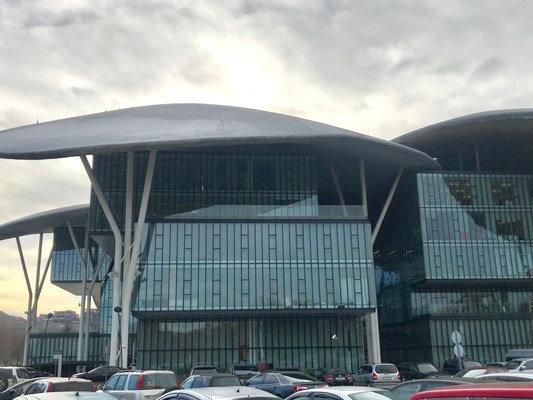
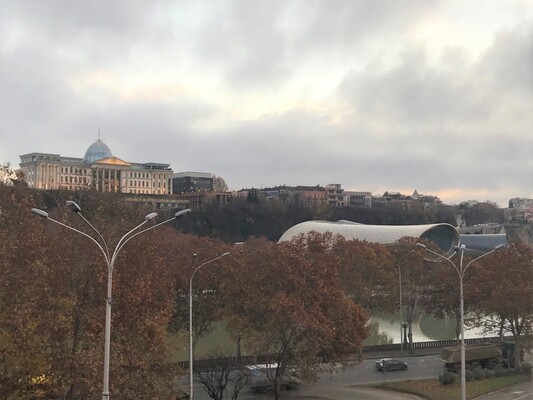
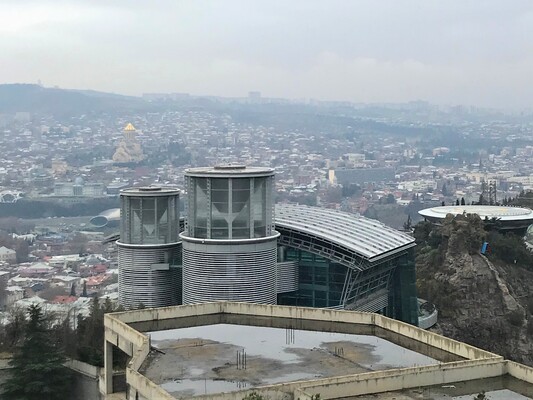
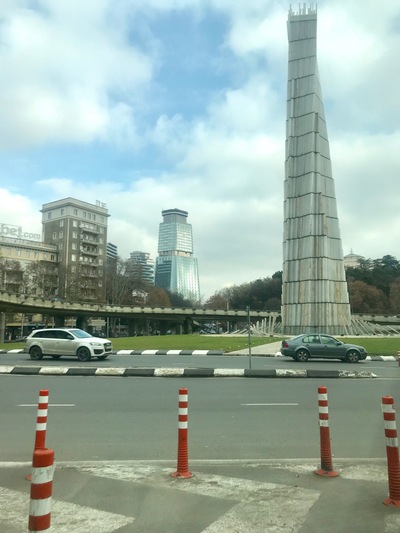
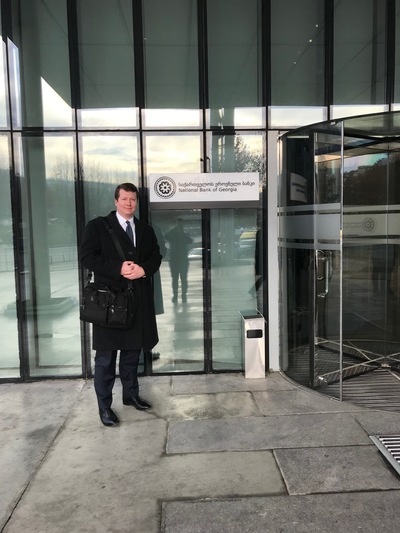
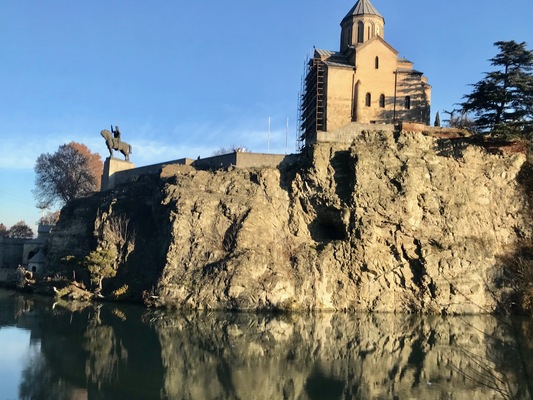
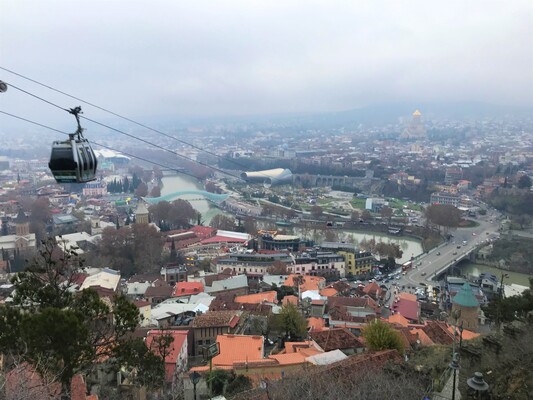
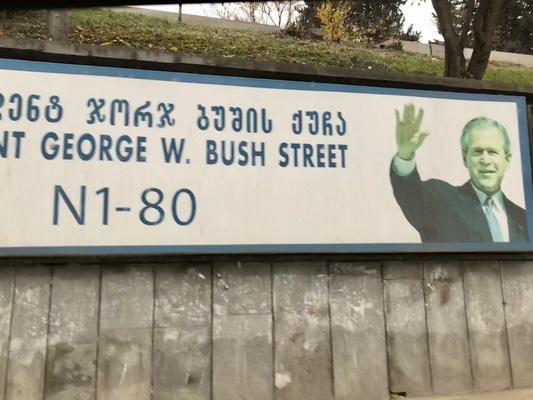
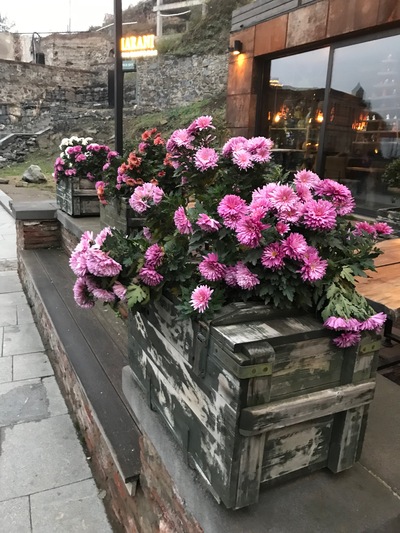
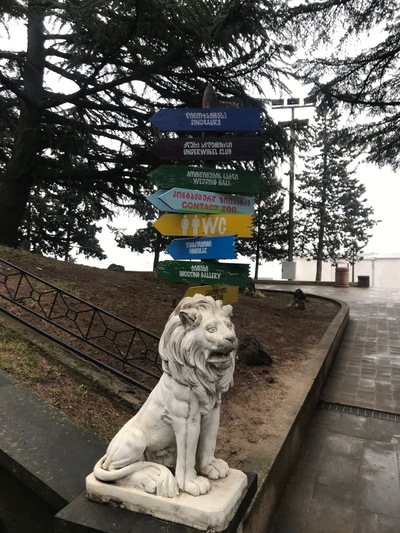
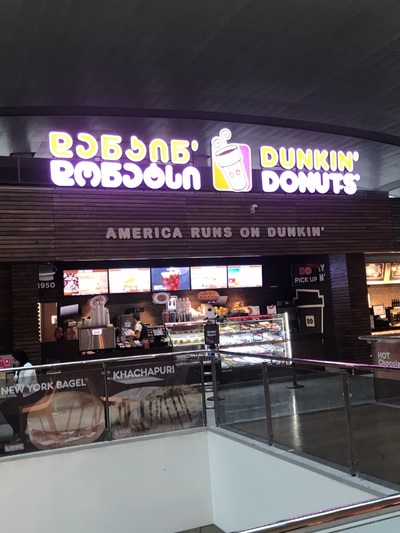
- The views and information discussed in this commentary are as of the date of publication, are subject to change, and may not reflect Seafarer’s current views. The views expressed represent an assessment of market conditions at a specific point in time, are opinions only and should not be relied upon as investment advice regarding a particular investment or markets in general. Such information does not constitute a recommendation to buy or sell specific securities or investment vehicles. It should not be assumed that any investment will be profitable or will equal the performance of the portfolios or any securities or any sectors mentioned herein. The subject matter contained herein has been derived from several sources believed to be reliable and accurate at the time of compilation. Seafarer does not accept any liability for losses either direct or consequential caused by the use of this information.
- As of March 31, 2019, the Seafarer Funds owned no shares in the entities referenced in this commentary.
- A guide to listing on the London Stock Exchange, London Stock Exchange plc and White Page Ltd, November 2010.
- Georgia: From Reformer to Performer. A Systematic Country Diagnostic, World Bank Group, 27 April 2018, 13.
- Fighting Corruption in Public Services: Chronicling Georgia's Reforms, The World Bank, 9 February 2012, 45.
- Doing Business 2019, World Bank Group, 31 October 2018, 5.
- Corruption Perceptions Index 2018, Transparency International, 29 January 2019.
- TRACE Bribery Risk Matrix: 2018 Results, Trace International, Inc., 6 December 2018.
![[Chrome]](/_layout/images/ua/chrome.png)
![[Firefox]](/_layout/images/ua/firefox.png)
![[Opera]](/_layout/images/ua/opera.png)
![[Microsoft Edge]](/_layout/images/ua/edge.png)